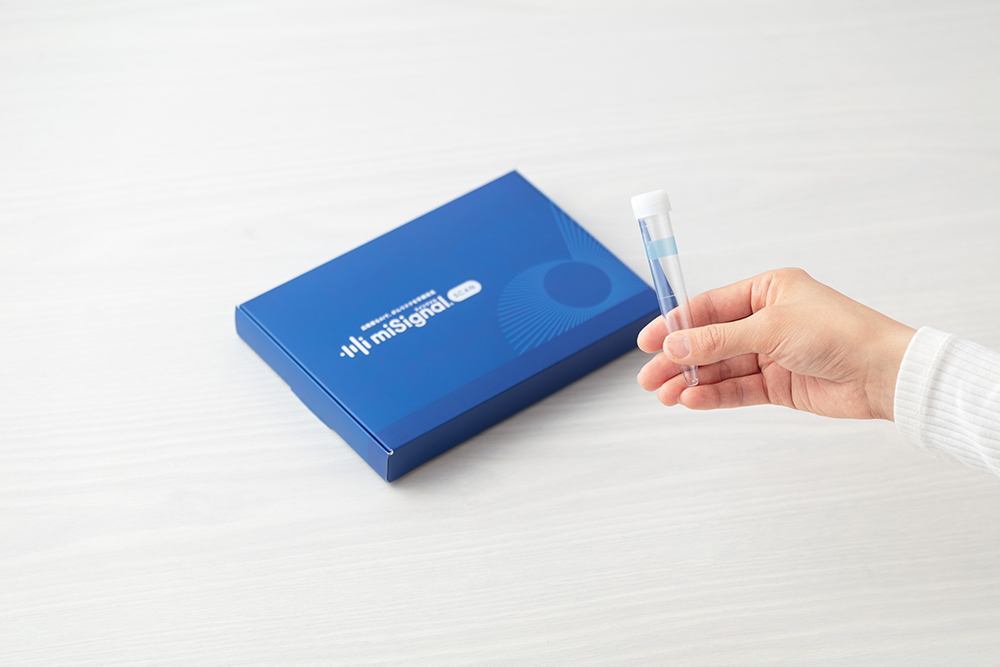
<strong>Image Credits:</strong>Craif / Craif
Early Cancer Detection Technology: Craif Raises $22M for Innovative Urine Test
Table of Contents
Craif’s miSignal early cancer detection technology uses urine samples to identify multiple cancer types at their earliest stages. (Image Credits: Craif)
The Global Cancer Crisis and Early Detection Need
Cancer remains one of the world’s most devastating health crises, with early cancer detection technology representing a critical frontier in the fight against this deadly disease. According to the National Cancer Institute, nearly 20 million new cancer cases and 9.7 million cancer-related deaths were reported globally in 2022. Even more concerning, projections indicate a surge to 29.9 million new cases annually by 2040, highlighting the urgent need for more effective and accessible screening solutions.
Early cancer detection technology offers the most promising path to reducing mortality rates, as most cancers become significantly more treatable when identified in their earliest stages. However, traditional diagnostic methods often present barriers that prevent regular screening, including invasive procedures, high costs, and limited accessibility—challenges that innovative companies like Craif are now addressing with revolutionary approaches.
The Cancer Detection Challenge
- Nearly 20 million new cancer cases globally in 2022
- Projected to reach 29.9 million annual cases by 2040
- Traditional screening methods often invasive and inaccessible
- Early detection dramatically improves survival rates
- Non-invasive technology key to increasing screening participation
Craif’s $22M Funding Round Details
Japanese biotech startup Craif has secured $22 million in Series C funding to advance its early cancer detection technology and expand into the U.S. market. The funding round, which valued the company at just under $100 million, was led by existing investor X&KSK, with participation from several notable investors including Unreasonable Group (marking its first investment in a Japanese startup), TAUNS Laboratories, Daiwa House Industry, and Aozora Bank Group.
This latest investment brings Craif’s total funding to $57 million since its founding in 2018, providing critical capital to fuel the company’s ambitious growth plans. The fresh funding will primarily support two strategic initiatives: expanding the company’s innovative early cancer detection technology into the competitive U.S. market and enhancing research and development capabilities to broaden the application of its microRNA-based diagnostic platform.
Founders’ Story and Mission
The development of Craif’s early cancer detection technology began with a deeply personal connection to the disease. Co-founder and CEO Ryuichi Onose was motivated by witnessing both his grandparents battle cancer, an experience that instilled in him a powerful commitment to addressing this devastating illness. This personal mission led him to connect with Takao Yasui, an associate professor at Nagoya University who had developed a novel method for early cancer detection using urinary biomarkers.
The two founders’ shared vision resulted in Craif’s creation just one month after their initial meeting. Spun off from Nagoya University in 2018, the company has maintained a clear focus on developing accessible, non-invasive diagnostics that can detect cancer at its earliest stages, when treatment is most effective and survival rates are highest. This founding mission continues to drive the company’s innovation and expansion strategies.
From Personal Experience to Global Innovation
Craif’s origin story highlights how personal experiences with cancer can spark meaningful innovation in early cancer detection technology. By combining Professor Yasui’s scientific breakthrough with Onose’s entrepreneurial drive and personal mission, Craif has developed a solution that addresses real barriers to cancer screening while leveraging cutting-edge biomarker science.
How Craif’s Early Cancer Detection Technology Works
At the heart of Craif’s breakthrough is its pioneering use of microRNA (miRNA) as a biomarker for early cancer detection technology. The significance of miRNA was recently highlighted when it was linked to the 2024 Nobel Prize in Medicine, underscoring its importance in medical science. Unlike most competing technologies that rely on cell-free DNA (cfDNA), Craif’s approach targets miRNA, which is proactively secreted by early cancer cells even at the earliest stages of development.
What makes this early cancer detection technology particularly revolutionary is its use of urine samples rather than blood. According to Onose, urine collection offers numerous scientific and practical advantages: it’s completely non-invasive, contains fewer impurities than blood samples, and provides clearer biomarker signals. This approach reduces measurement errors such as those caused by hemolysis (the breakdown of red blood cells) in blood tests while simultaneously lowering testing costs.
The company’s flagship product, miSignal, uses this technology to detect the risk of seven different cancer types: pancreatic, colorectal, lung, stomach, esophagus, breast, and ovarian cancer. The test is designed to be user-friendly, allowing individuals to collect samples in the comfort of their own homes, thereby removing many barriers to regular cancer screening.
Competitive Advantages in Cancer Screening
The early cancer detection technology landscape is becoming increasingly competitive, with players like Grail, Freenome, DELFI Diagnostics, and Clearnote Health all developing platforms for early cancer detection. However, Craif’s approach offers several distinct advantages that position it uniquely in this growing market.
The most significant differentiating factor is Craif’s use of microRNA instead of cfDNA. While many competitors focus on detecting DNA fragments released by tumors, Craif targets miRNA, which plays a fundamental role in cancer biology from the earliest stages of disease development. This focus potentially enables detection of cancers at earlier stages than competing technologies.
Additionally, Craif’s urine-based testing method provides practical benefits that could drive wider adoption. The non-invasive nature of urine collection eliminates the need for blood draws or tissue sampling, making the screening process more comfortable and accessible for users. This approach addresses key barriers that prevent people from participating in regular cancer screening programs.
Why Urine-Based Testing Matters
The non-invasive nature of urine-based early cancer detection technology significantly lowers barriers to regular screening. For many individuals, the discomfort and inconvenience of blood draws or more invasive procedures are major deterrents to getting recommended cancer screenings. By offering an easy, at-home collection method, Craif’s approach could dramatically increase screening rates, potentially saving countless lives through earlier detection and treatment.
Current Success and Market Expansion Plans
Craif’s early cancer detection technology has already gained significant traction in Japan, where the company has established partnerships with over 1,000 medical institutions and approximately 600 pharmacies. These distribution channels currently serve around 20,000 users, demonstrating growing adoption of the company’s miSignal test.
The company’s business model offers both single tests and subscription packages for regular screening, with many users opting for ongoing subscription plans. This approach has proven successful, with Craif reporting $5 million in revenue in 2024 and projecting substantial growth to $15 million by the end of the year. With a team of 73 employees, the company is well-positioned for its next phase of expansion.
The newly secured funding will play a crucial role in Craif’s international growth strategy, particularly its plans to enter the U.S. market with its microRNA-based early cancer detection technology. The company has already established an R&D lab in Irvine, California, and plans to open another office in San Diego to manage its business operations in the United States. These strategic locations will support Craif’s efforts to complete clinical trials and secure FDA approval, with trials expected to conclude around 2029.
Future Technology Development Roadmap
Craif’s vision for its early cancer detection technology extends well beyond its current capabilities. The company plans to expand the scope of its miSignal test to cover ten different types of cancer by the end of this year, broadening its potential impact on early diagnosis across multiple cancer varieties.
Perhaps even more ambitious is Craif’s plan to apply its microRNA technology to the early detection of non-cancerous diseases, including neurodegenerative disorders like dementia. This expansion demonstrates the versatility of the company’s technological platform and its potential applications beyond oncology.
In the United States, Craif has already begun collecting pancreatic cancer samples in collaboration with 30 medical institutions across 15 states. This early work will support the company’s U.S. clinical trials and eventual FDA approval process, paving the way for American patients to access this innovative early cancer detection technology in the coming years. As cancer rates continue to rise globally, technologies like Craif’s miSignal represent a critical advancement in our ability to detect and treat this deadly disease at its most curable stages.





